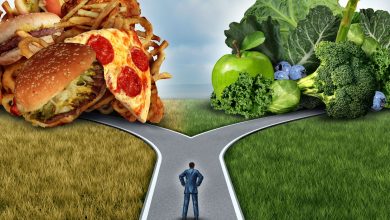8 Signs Someone Has Eco-Anxiety

You are familiar with anxiety disorders. But have you heard of eco-anxiety? It is a relatively new type of anxiety. You first coined up to 1000 in 2017. Indeed, it is a novel term that the American Psychiatric Association has yet to add to the DSM-5.
However, due to the chronic overabundance of the fear of extinction in the environment, it has become a discipline that requires deeper investigation. Eco-anxiety is a term used by many psychologists and psychiatrists. This book describes people who are constantly worried and worried about the world around them.
It falls under the field of ecopsychology and has a significant impact on a person’s overall health. Climate change, food shortages, and a broken medical system that leaves many unable to care seriously impact many.
Eco-anxiety is much more than just being anxious and worried as you see it with traditional anxiety because it leads to severe problems with your health and well-being.
Many experts believe that the continuous impact of climate change is to blame for this situation. Sea levels are slowly rising in the Arctic due to melting glaciers. As the water level increases, it changes the weather conditions.
According to the United States Environmental Protection Agency, the climate has become quite harsh from time to time. It is only standard that people feel these changes in atmospheric pressure that affect their mental health.
What is eco-anxiety?
Eco-anxiety is a form of anxiety expressed by concern about threats affecting our planet and environment today.
There are two primary forms of eco-anxiety: acute, which develops from direct exposure to the effects of climate change (such as losing a home in a fire), and chronic, which occurs when the disturbance is long-term. Exposure to fears about a changing planet.
It’s similar to the two types of trauma that trigger PTSD, depression, and other mental health symptoms. The trauma of the planet is traumatic for each of us.
Here is a popular working definition of eco-anxiety by psychologist Honey Langcaster-James:
“It’s a chronic fear of environmental doom and impending disaster, and the underlying fear is one of total destruction and annihilation as a result of severe climate and environmental strain.”
Eight signs of eco-anxiety most people don’t understand
Are you too anxious and worried about the environment? The American Psychiatric Association conducted a study to find out how many people were affected by this new form of anxiety in 2020, and the numbers are staggering.
They found that 67% of the population is affected by environmental change. Are you one of those people? Some signs indicate that you have this radical new form of anxiety.
1. Overwhelmed by the need to establish eco-friendly habits
You’re spastic about creating eco-friendly practices that can help save Mother Earth. It bothers you so much that it drives you crazy when others fall short of their efforts, like processing.
Want to reduce your carbon footprint? With every step, you take, consider protection. It ruins your life. You can’t be too careful to worry about who the planet is. Others may think that you lack balance but that you are up to the task of helping.
2. Extreme weather scares you
While most people worry about fire and flood, it has become a phobia for you. You need to know what is happening with the weather where you live and worldwide.
Many people prefer to listen to the regular news, but you can’t help but focus on the weather aspects. If there’s a hurricane, a major snowstorm, or a tsunami, you’re glued to the TV or other electronics and waiting for new development.
3. Anticipatory anxiety – common with eco-anxiety
You have a primal instinct to feel safe. When you think your overall well-being is in danger, you become hypervigilant. You are constantly observing and guarding, looking for changes.
This is called anxiety about what will happen in the future and fear. Your sympathetic nervous system goes into high gear. You fear things that haven’t happened yet.
4. The impact of environmental change on wildlife causes meltdowns
You’re an animal lover, and thoughts of what climate change will do to these defenseless creatures send your anxiety skyrocketing.
The sense of frustration brought about by the information spread on television and social networks just by seeing it causes anxiety symptoms. Not only are you concerned about your health and well-being, but also the wild animals that have been harmed.
5. Doom Scrolling is a normal part of your life
You try to stop yourself, but you can’t help but find the latest news on climate issues and the world around you. Your phone is set to alert you of delayed information, and you’ll find that your free time is spent on doomed scrolling.
You find security in knowing what is going on. If you are away from the Internet, you are anxious and worried until you can catch up on the latest developments.
6. As a result of your eco-anxiety, it is impossible to make plans for the future
While many people plan for their future, you are chronically anxious, and it won’t let you see beyond today. Your doom and gloom affect every area of your life.
You talk about the end of the world more than you should. You can’t even think about tomorrow because you are worried and panicked about what might happen around you today.
7. Your Eco-anxiety is manifesting in chronic physical symptoms
In people experiencing eco-anxiety, this condition can manifest itself in different ways. You may experience panic attacks and indigestion, and your concentration ability may decrease. In many cases, these symptoms are chronic and sometimes unbearable.
It is essential to determine if this is just anxiety or if there is an underlying condition such as a mood or personality disorder.
8. You feel like an outcast in society
The world around you focuses on the have-state and has-state greed. But the environment can make you feel lonely. You are so passionate about your efforts that when you see someone littering, it sends you to the husband. People who don’t care about the world around them and focus only on themselves make you see red.
Why is eco-anxiety on the rise?
Eco-anxiety is on the rise. This is, of course, partly due to increased awareness of the issue. This always leads to improved diagnosis. However, the problem itself is growing.
There are several main reasons for the rising level of eco-anxiety. The biggest of these is that more and more people are directly affected by the consequences of climate change. Individuals are increasingly living with natural disasters, suffering from infrastructure disruptions, and seeing firsthand the devastation of changes in our climate.
In addition, we are all increasingly exposed to second-hand information that can cause anxiety. You may not have personally experienced a natural disaster, but you’ve seen it happen on the news and social media.
Trauma is not just directly experiencing an adverse event. Trauma can be a constant witness to such an event. Even witnessing these has the potential actually to raise chronic stress levels. This is eco-anxiety.
Five ways to calm your mind from eco-anxiety
If your anxious and restless nature causes you to miss the beauty of the world around you, you need to calm your mind. While it’s good to have some anxiety for your morning and the earth around you, you can’t live in fear.
Being agnostic all the time is not suitable for your heart, blood pressure, or general well-being. How can you overcome anxiety?
1. Find organizations to join in fighting climate change
Finding an organization to protect the earth and help them can be helpful. Being part of a group, not just a gang, helps you rank.
Seeing people making positive changes that benefit Mother Earth can be very reassuring, as you know something is being done. Plus, being surrounded by like-minded people can relieve some anxiety.
2. Celebrate your achievements
Many people keep journals as a chronological record of their lives. You can also create a book about your efforts to help the earth.
You can put eco-anxiety in its place by keeping a journal. When you feel the source of your anxiety, you can pull out this book to remind yourself of everything you’ve done to help.
3. Set limits on scrolling
You should limit the amount of internet scrolling you do for your mental health. This is true not only of climate issues but of information in general. Although the Internet is a valuable and helpful tool, it can also be very destructive to the anxious person.
Set a firm time limit and only allow certain times to scroll, so it doesn’t overwhelm you. Another point is to choose your news outlets wisely. You want to listen to people to try to help change and not just report doom and gloom all the time.
4. Practicing positive self-care
Self-care plays a vital role in mental health from adolescence to adulthood. Spending more time in the natural environment and creating a personal connection with nature is the best way to overcome eco-anxiety.
Whether walking, running, or meditating, incorporating physical activity into your daily life can help you live in the present and reduce symptoms of depression and anxiety.
Along with physical activity, aim to eat a healthy and balanced diet, get enough sleep, and limit caffeine use. Intentionally making time for daily activities that you enjoy and contribute to your overall health can significantly influence your mental well-being.
5. Join an online anxiety support groups
It’s often lonely when you suffer from anxiety and think no one understands your feelings. Thankfully, there is more and more awareness of eco-anxiety. Even online support groups can help.
Talking with like-minded people who share your passion for the earth can be healing. One online group is The Good Grief Network. They have a lot of information, videos, and a chat forum where you can communicate with others with similar views.
Final thoughts on eco-anxiety and how to calm anxious thoughts?
The emotional turmoil surrounding climate change may seem less pressing than the material, severe damage many people are already facing worldwide.
Eco-anxiety seems to be a new part of life for some people. If you find worrying too much is bothering you, it may be time to talk to a professional. A therapist can help you understand these fears, put them in their place, and teach you to be proactive.
You’ll feel better doing something instead of sitting around worrying. While it’s important to help animals and the world around you, you can’t forget to help yourself. Self-care is critical; no good cause will do much good if you don’t care for yourself.
But again, it’s essential to pay attention to these feelings instead of avoiding them. After all, awareness is the key to change.
You need to ensure proper rest and good nutrition. Exercise is necessary to stay healthy. Anxiety can ruin your life if you let it. But you can turn all that passion and concern into motivation to make a change.












